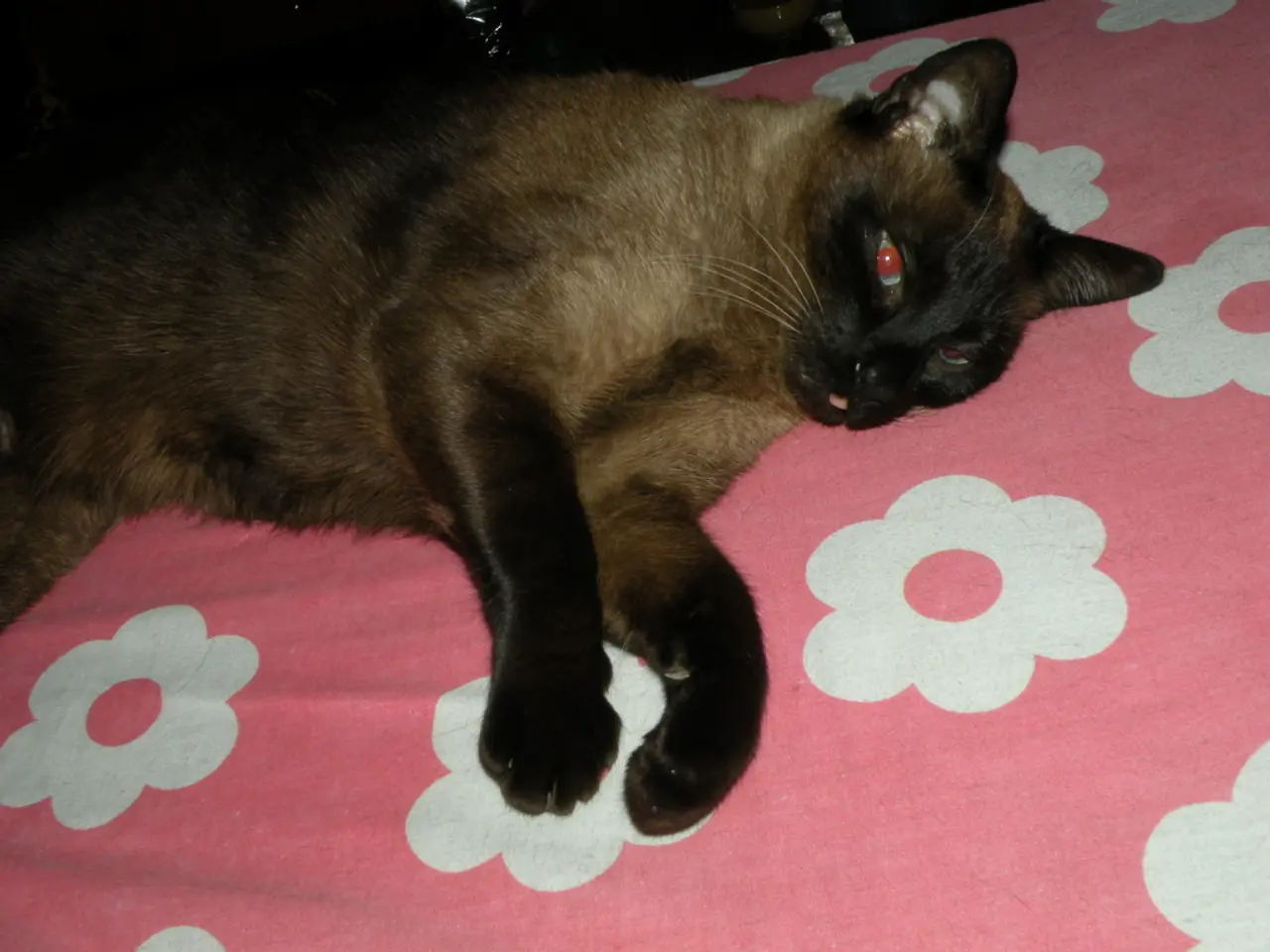Cat bedsoaking mystery: Understanding feline urination on your bed
Cats are often cherished companions, but their occasional habit of peeing on the bed can be a frustrating issue for many pet owners. There are several reasons behind this behaviour, and understanding these causes can help in finding effective solutions.
Common causes for a cat peeing on a human's bed include medical issues, litter box problems, stress and behavioral triggers, as well as scent and territory marking.
Medical issues are a primary concern and can include feline lower urinary tract disease (FLUTD), feline idiopathic cystitis (FIC), urinary tract infections, bladder stones, diabetes, kidney disease, and incontinence. These conditions can cause pain, discomfort, or the urgent need to urinate, leading the cat to avoid the litter box or urinate in inappropriate places like the bed.
Litter box problems are another common cause. If the litter box is dirty, has an unsuitable litter type, is located in a noisy or inaccessible area, or if there aren't enough litter boxes for multiple cats, the cat may avoid using it and choose the bed instead.
Stress and behavioral triggers often lead to urination on beds. Changes in the cat’s environment such as new furniture, new pets or people, relocation, renovations, or even alterations to feeding routines can increase anxiety, causing cats to urinate on beds as a way to self-soothe or alleviate distress.
Scent and territory issues are significant behavioral factors. Cats mark territory with their urine to establish boundaries, especially if they feel threatened or insecure about their environment. If a cat perceives the bed as part of their territory or wants to assert control, they might urinate there as a form of marking.
Solutions to this issue include prompt veterinary examination to rule out or treat medical causes, ensuring litter boxes are clean, appropriately located, and suit the cat’s preferences, and reducing stressors by maintaining a stable routine and familiar environment. Enhancing positive interactions such as treat-giving and playtime with new household members, and using deterrents or pheromone therapy may also help.
It's important to note that withholding punishment is advised as it can worsen stress and the problem. Consulting with a veterinary behaviorist is recommended if the issue persists despite these measures.
In multi-cat households, scent marking can cause a cat to pee on the bed. Closing the bedroom door, cleaning thoroughly with enzyme cleaners, and trying different types of litter can help reduce this behaviour.
The bed smelling like the owner can offer comfort to a cat, but can also become a urinal when anxiety peaks. Changes in routine, a new person or pet, or moving the food and water bowls can stress a cat out and cause them to pee on the bed.
If a cat continues to pee on the bed, consulting a vet or a feline behaviorist may be necessary. Keeping the litter box clean is important to prevent a cat from peeing on the bed. With patience, understanding, and the right strategies, you can help your feline friend stop this unwanted behaviour and maintain a clean, comfortable home for both of you.
- Understanding that medical issues, such as feline lower urinary tract disease or urinary tract infections, can cause cats discomfort and lead them to urinate outside the litter box, pet owners should schedule a prompt veterinary examination to rule out or manage these conditions.
- In cases where there are litter box problems, ensuring that the box is clean, in a suitable location, and filled with litter preferred by the cat can encourage the cat to use it rather than the bed.
- When stressors like changes in the environment, new pets or people, or routine alterations are present, it's essential to maintain a stable routine, establish positive interactions, and employ stress-reducing strategies, such as pheromone therapy or deterrents, to help prevent the cat from urinating on the bed.




